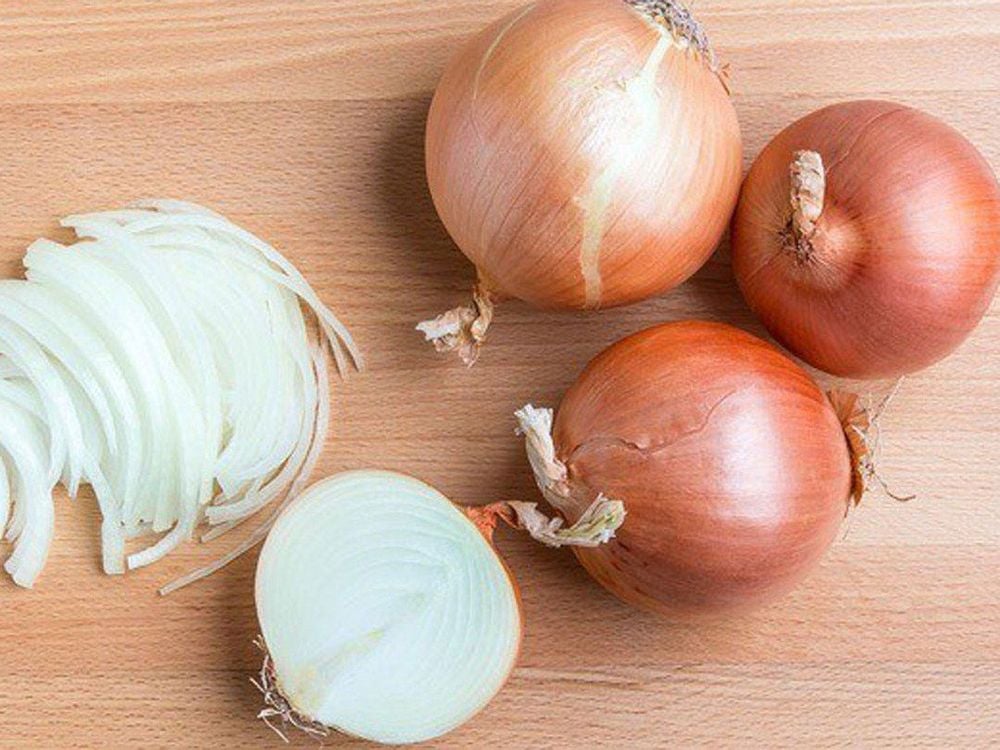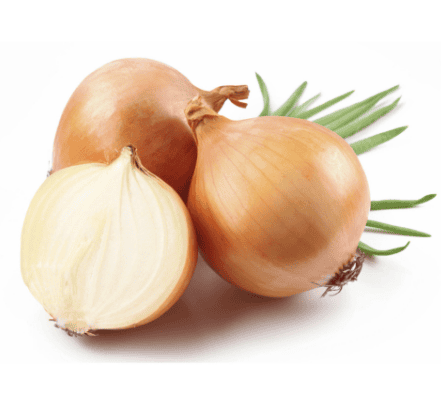This is an automatically translated article.
Food onion belongs to the Onion family. When using onions, it will cause bad breath or watery eyes because the compounds in onions contain sulfur. However, according to experts, these compounds are the main components that determine the health benefits of onions. So, how to eat onions to promote its benefits.
1. Nutritional Benefits of Onions
What are the benefits of eating onions? To answer this question, we must first consider the nutritional benefits of onions for the body.
1.1. Onions are rich in flavonoid compounds The compound composition of onions is particularly rich in flavonoids - the most beneficial plant compounds for health. Flavonoids, also known as polyphenols, have a role in reducing the risk of cancer, cardiovascular diseases or infections related diseases.
Moreover, flavonoid compounds also have a strong antioxidant role that delays or slows down cell damage caused by oxidation taking place in the body. This compound is usually distributed concentrated in the flesh of onions, so when processing, care should be taken to limit the loss of this precious nutrient. In addition, onions also contain an important flavonoid compound called quercetin. This compound has been researched to demonstrate its anti-cancer properties. Several recent studies have also concluded that quercetin slows the growth of tumors in pancreatic cancer. In addition, quercetin also has a role in lowering blood pressure of patients with cardiovascular diseases such as: stroke, coronary artery disease, heart failure, peripheral artery
1.2. Onions are rich in organic sulfur compounds The mineral composition of onions is rich in sulfur. This is also the compound that gives the characteristic flavor of this food. Besides, this compound is also effective in reducing inflammation and reducing symptoms that cause bronchial asthma, arthritis and heart-related diseases. In addition, the thiosulfinate compound in onions has been proven by studies to have a natural anticoagulant effect, preventing the formation of blood clots in the blood vessels. As a result, helping patients with heart-related diseases can reduce the risk of heart attack and stroke.

Hành tây là loại thực phẩm giàu hợp chất lưu huỳnh hữu cơ
1.3. Onions are rich in chromium compounds Is it good to eat onions? In fact, the nutritional composition of onions contains the mineral chromium, which has the ability to support blood sugar regulation and enhance insulin hormone activity. Moreover, this mineral is directly involved in the metabolism of carbohydrates, fats and proteins in the body. This factor is quite unique and plays an important role in patients with type 2 diabetes or patients with insulin resistance.
1.4. Onions are rich in vitamin C Onions are a rich source of vitamin C. This vitamin is considered a familiar antioxidant that plays an important role in the body's immune system. Moreover, vitamin C also has an equally important role in improving iron absorption for the body.
Vitamin C in vegetables is easy to lose by factors related to temperature, light, metal... However, with vegetables, the vitamin C content is less lost.
2. Some side effects of onions
Besides learning what are the effects of onions? We cannot ignore whether using a lot of onions will bring about any side effects?
One of the disadvantages that cannot be ignored is that it makes the user's tears flow. And some other side effects such as:
Bad breath: Onions are related to garlic and onions. All onions contain sulfuric compounds and when entering the body will be metabolized and then enter the bloodstream. Blood will be circulated throughout the body, so when you eat onions, it will cause onion-smelling sweat. In addition to sweating the body has the smell of onions, when eating onions will also leave an odor on our mouth. This mechanism can be explained by the sulfur compounds metabolized in the liver, causing the breath to smell like sulfur. Bad breath will be noticed immediately after eating onions including onion leaves, and this will disappear when onions are fully digested in the body. Excessive use of onions will increase the condition of irritable bowel syndrome: This is considered a common digestive disorder that affects the large intestine and causes symptoms such as bloating, abdominal pain, diarrhea. , or can cause constipation. Although this symptom is not harmful to the intestinal tract, it will make the sufferer feel uncomfortable and affect daily life. Irritable bowel syndrome occurs more often in women than in men and occurs in people younger than 45 years of age.

Sử dụng hành tây quá mức sẽ làm tăng tình trạng của hội chứng ruột kích thích
Causing gastroesophageal reflux: If you have heartburn or have gastroesophageal reflux disease, the diet should not use onions. Because onions can cause effects that affect the condition of the disease such as a burning sensation in the chest, a sore throat or a taste of fluid in the mouth. In some specific cases, gastroesophageal reflux disease can lead to serious consequences due to the use of onions.
3. When to use onions?
If you have irritable bowel syndrome then you should not use onions. And if you have gastroesophageal reflux, especially should not use onions in the evening, before lying down or before going to bed. Because, lying down after eating onions can aggravate heartburn symptoms
Using onions will cause bad breath so consider before using. Because the bad breath effect can be long-lasting and even bothersome after a few hours of use.
Any questions that need to be answered by a specialist doctor as well as customers wishing to be examined and treated at Vinmec International General Hospital, please register for an online examination on the Website for the best service.
Please dial HOTLINE for more information or register for an appointment HERE. Download MyVinmec app to make appointments faster and to manage your bookings easily.













